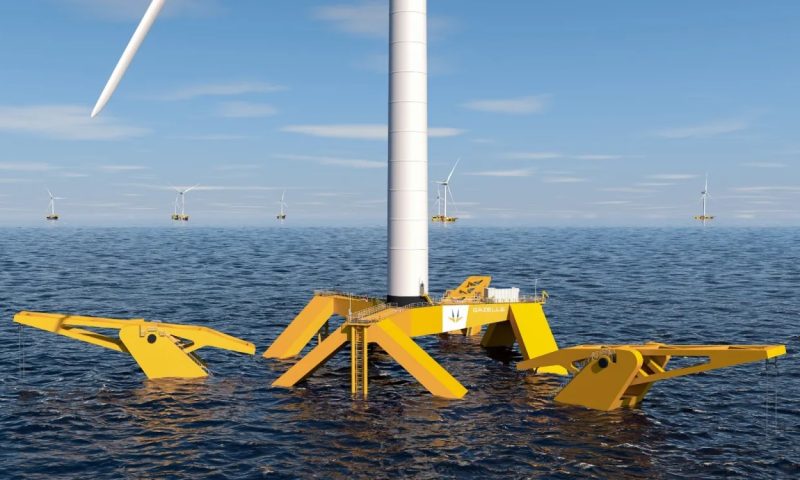
UK Renewable Energy Exceeds Five Times the Expected Output
With a little help from Storm Aiyah, the first named storm of the season, UK wind power generating more than 16GW of electricity – setting a new record for renewable energy.
The National Grid stated that that on Sunday, wind farms generated more than 16 gigawatts of power – five times the output expected from the controversial new Hinkley Point C nuclear power plant under construction in Somerset.
The Guardian explained that storm Atiyah swept in from Ireland on Sunday, bringing gusting winds recorded at up 80 mph when it crossed to Wales and southwest England from Ireland. The wet and windy weather could cause continued disruptions through Thursday, potentially affecting voting in the general election.
Customers paid to use the electricity
Luke Clark from Industry body RenewableUK’s said it was all about the unbelievable amount of energy generated by the winds:
“This new British clean energy record is a great early Christmas present, and shows just how important wind is in an energy system that’s changing rapidly.” “On a dark cold Sunday when we need it most, the wind was providing more than 40 percent of our power, far more than any other source of electricity. Wind energy is at the heart of our modern power system, enabling us to take practical action against dangerous climate change.”
The previous wind energy record of 15.32 gigawatts was set on February 8 this year. With all that extra power on the grid, the National Grid on Sunday paid some customers to use the electricity, because it was cheaper than paying the operators of wind turbines to stop them generating, reports Energy Voice.
Octopus Energy’s customers got a break at one point on Sunday night. With the company’s agile pricing tariff, customers who own electric cars got paid to charge their vehicles or sell it back to the grid by as much as 5p per unit of power.
“At Octopus we are increasingly seeing those on our agile smart meter tariff tweak their daily routines to push their usage into these cheap, off-peak and renewable-heavy hours,” said Octopus chief executive Greg Jackson.








